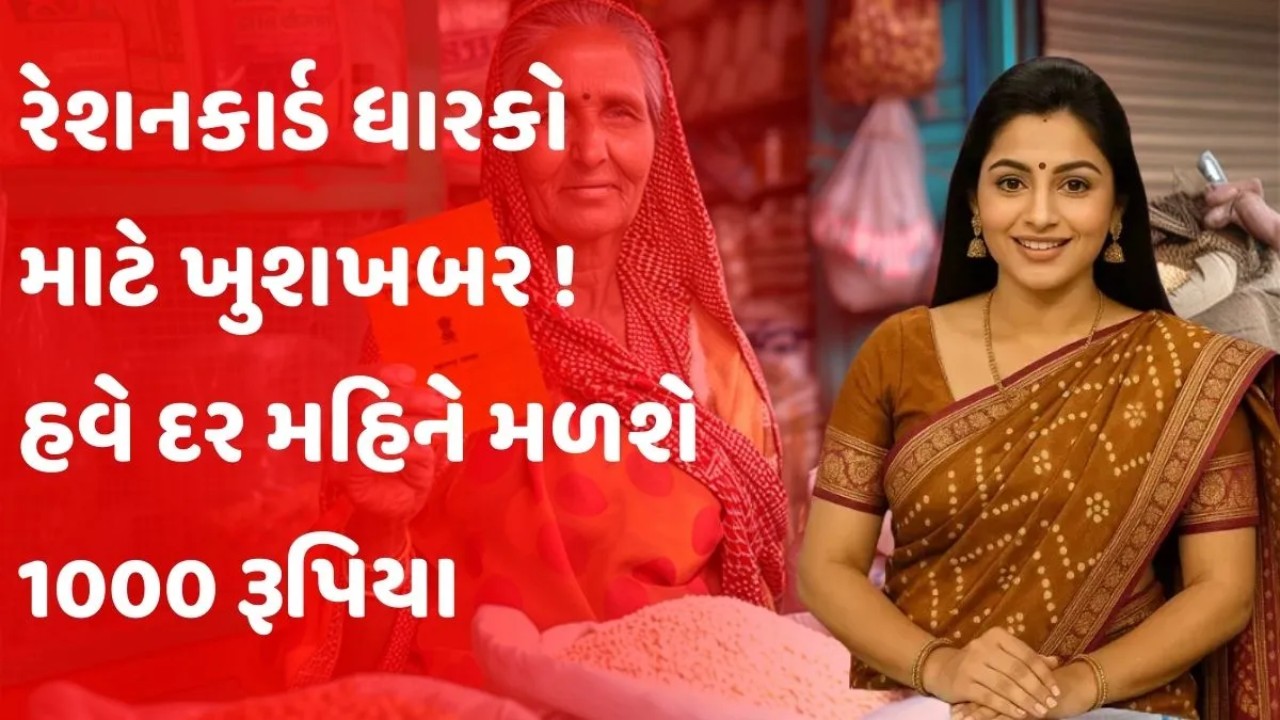Good News for Ration Card Holders: The government has announced good news for ration card holders. A new scheme has been launched that provides eligible families with monthly financial assistance of ₹1000, directly credited to their bank accounts. This initiative is aimed at supporting low-income households and ensuring financial security for millions of families dependent on the Public Distribution System (PDS). Below are all the key details you need to know – eligibility, application process, required documents, and how the money will be transferred.
Good News for Ration Card Holders
Under this new scheme, ration card holders will receive ₹1000 per month as financial aid. The amount will be transferred directly into beneficiaries’ bank accounts via Direct Benefit Transfer (DBT).
The scheme focuses on poor, marginal, and low-income families already availing ration benefits. The objective is to ease the burden of rising expenses on essential needs like food, healthcare, and education.
Who Will Get ₹1000 Every Month? – Eligibility Criteria
To receive the benefits, ration card holders must meet the following conditions:
- Must possess a valid ration card issued under the National Food Security Act (NFSA).
- Families living Below Poverty Line (BPL) will be prioritized.
- Widows, senior citizens, and women-headed families will get special preference.
- Only residents of the states where the scheme is implemented are eligible.
- Applicants must have an active Aadhaar-linked bank account for DBT transfers.
- Families already availing similar benefits from other schemes may not be eligible for double benefits.
Documents Required for Application
Beneficiaries must submit the following documents to avail of the ₹1000 monthly support:
- Copy of ration card
- Aadhaar cards of applicant and family members
- Bank account details (passbook copy)
- Passport-size photos
- Aadhaar-linked mobile number
- Proof of residence (electricity bill, voter ID, etc.)
How to Apply for the ₹1000 Monthly Scheme
The application process is simple and can be done both online and offline, depending on the state government’s guidelines.
Offline Application Process
- Visit the nearest ration office or government help center.
- Collect the application form for ₹1000 monthly support.
- Fill out the form carefully and attach the required documents.
- Submit it at the office and collect the acknowledgment receipt.
Online Application Process
- Visit the official state government portal.
- Click on the link for the “Ration Card Holders ₹1000 Scheme.”
- Register using your Aadhaar-linked mobile number.
- Fill in the form with ration card and bank details.
- Upload scanned copies of the required documents.
- Submit and save the acknowledgment number for future tracking.
Direct Benefit Transfer (DBT) – How the Money Will Reach You
The government will deposit ₹1000 every month directly into beneficiaries’ bank accounts. To ensure smooth transfer, make sure:
- Your bank account is active.
- Your Aadhaar is linked with both your ration card and bank account.
- Your mobile number is updated for SMS alerts.
- The first installment will be credited within one month of application approval.
Important Points to Remember
- Each eligible family will receive ₹1000 per month, not per individual.
- Ensure your ration card is valid and active to receive the benefit.
- The scheme is state-specific, so check your local government’s announcement.
- The application is completely free – avoid middlemen.
- Keep checking the official website for updates on application status.
How to Check Application Status Online
Once you’ve applied, you can verify whether your application has been approved:
- Visit the state government’s official ration portal.
- Click on the “Check Beneficiary Status” link.
- Enter your application number or ration card number.
- The portal will show if your application is approved and whether funds have been transferred.
Impact of the ₹1000 Scheme on Ration Card Holders
This initiative will provide major relief to millions of low-income families. With the extra ₹1000 support:
- Families can manage essential household expenses more easily.
- Women-headed households will gain greater financial independence.
- Senior citizens and widows will receive extra security.
- It will help reduce dependency on moneylenders and debt traps.
| Info In Gujarati | View |
Thanks for visiting this useful post, Stay connected with us for more Posts. Visit every day for the latest offers of various brands and other technology updates.
